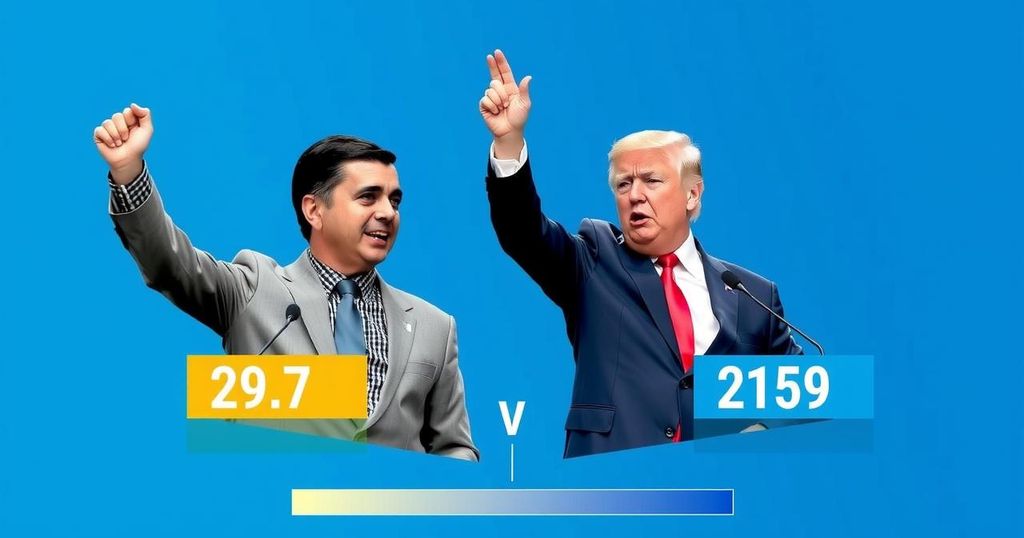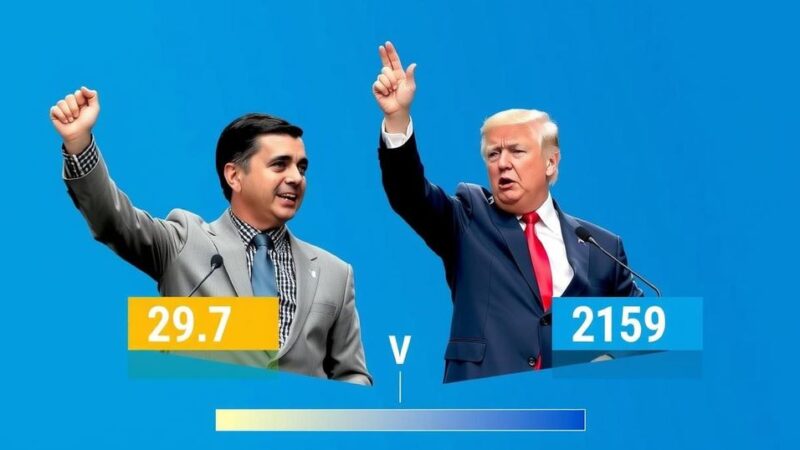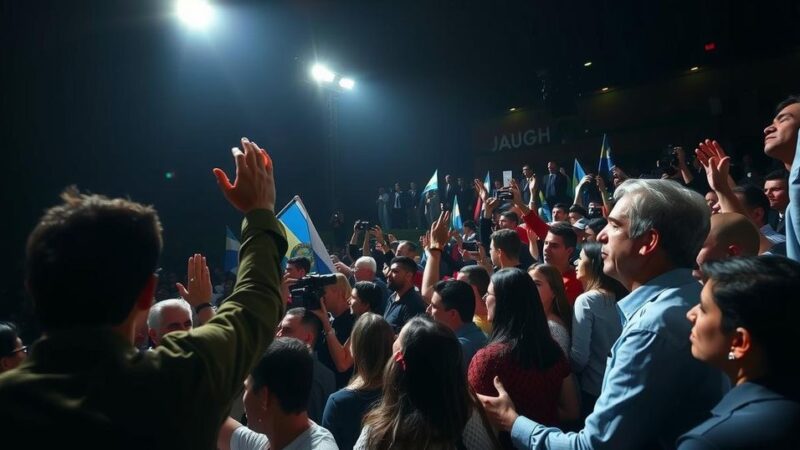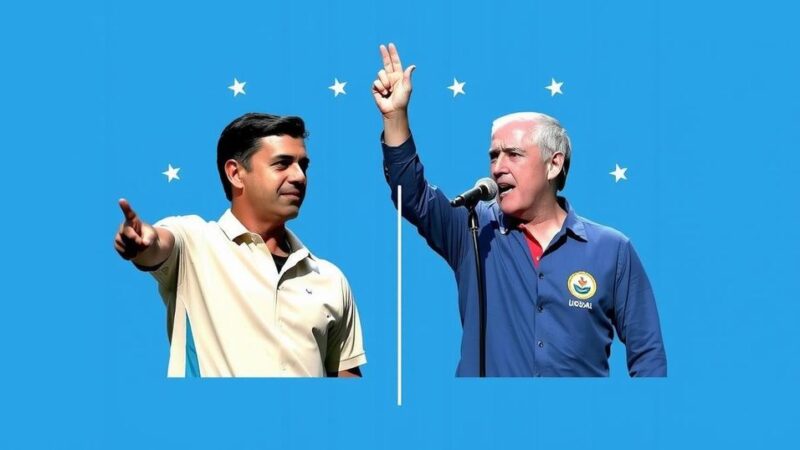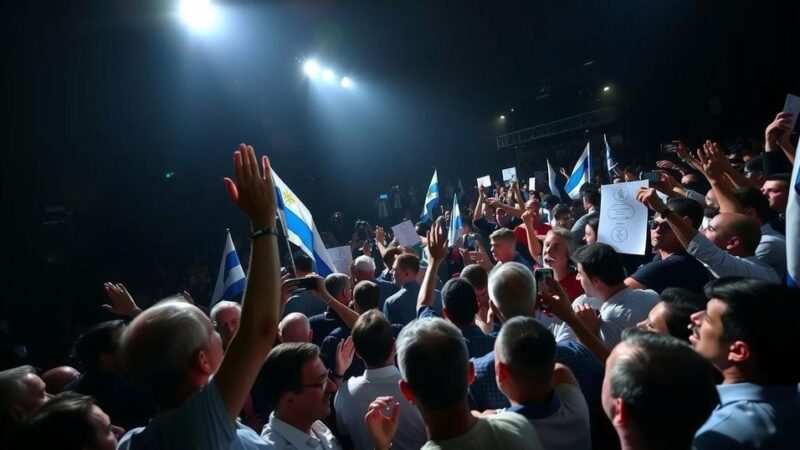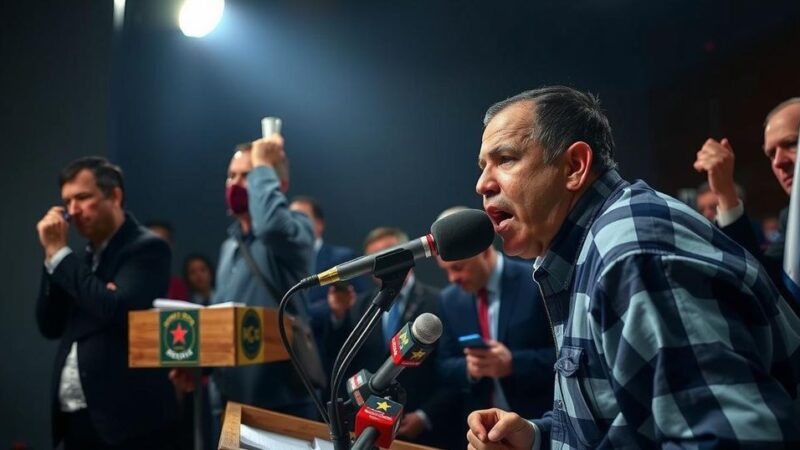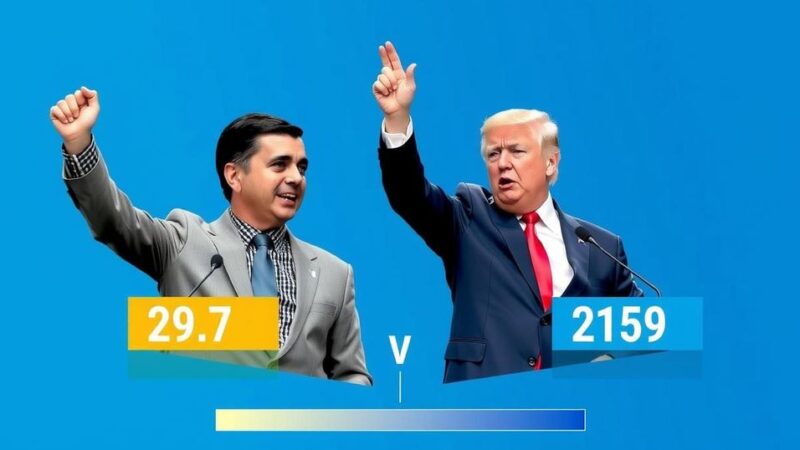Uruguayans will vote in a presidential runoff featuring Álvaro Delgado and Yamandú Orsi, following a close first round where neither candidate achieved a majority. The election has become intense, with both candidates addressing economic issues and rising crime rates. Analysts note the absence of extreme political polarization, leading to voter indecision and apathy, while both candidates propose different paths for Uruguay’s future.
Uruguay is preparing for a presidential runoff election, as voters return to the polls for a decisive second round. The election features Álvaro Delgado from the ruling National Party and Yamandú Orsi from the opposition Broad Front, following a closely contested first vote where no candidate secured a majority. The campaign has focused on key issues such as crime and economic policies, with both candidates positioning themselves to appeal to a populace concerned about these matters.
In the first round, Orsi’s Broad Front secured 44% of the vote, while Delgado’s National Party garnered only 27%. However, support from other conservative parties, specifically the Colorado Party, has propelled Delgado into a competitive stance in the runoff. The political landscape remains fragmented, leading to a significant number of undecided voters, intensifying the electoral race between both contenders.
The election is characterized by a lack of populist fervor, contrasting with trends observed in other nations. Analysts suggest that the absence of extreme political polarization has resulted in notable voter apathy. Current discussions predominantly surround taxation and social spending rather than confronting existential threats to democracy, as seen in more volatile political environments.
Delgado, a veterinarian with a long association with the National Party, is advocating for continuity in governance, focusing on maintaining the economic policies of outgoing President Luis Lacalle Pou. In contrast, Orsi, a former history teacher from humble beginnings, aims to rejuvenate the left’s platform, appealing to moderates with proposals of responsible economic reforms and social security adjustments.
This election period is seen as indicative of Uruguay’s stable democratic structure, even amidst challenges such as increased crime. The importance of political accountability and public sentiment regarding poverty and safety resonate strongly in this electoral cycle, making it a pivotal moment for the nation’s leadership.
Uruguay’s political landscape has traditionally been characterized by its stable democracy and moderate political discourse. The first round of elections prior to this runoff highlighted the divisions between conservative and left-leaning parties, with the ruling National Party facing backlash due to public policy ramifications. The Broad Front, which held power for a significant period, has reemerged as a formidable competitor. Furthermore, the ongoing issues of economic management and public safety present crucial challenges that both candidates must address as they seek support from the undecided electorate.
In conclusion, the upcoming presidential runoff in Uruguay embodies a critical juncture for the country’s political future. Álvaro Delgado and Yamandú Orsi are vying not only for the presidency but also for the public’s trust under a backdrop of pressing socio-economic issues. With a substantial number of undecided voters and a competitive political climate, the outcome will significantly impact Uruguay’s governance trajectory. This election reaffirms the nation’s democratic resilience in facing contemporary challenges.
Original Source: abcnews.go.com
